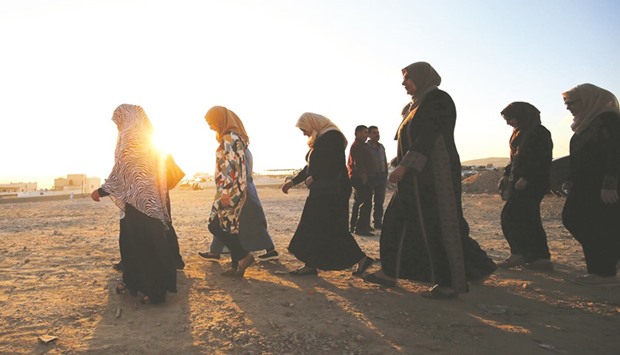Israel’s cancellation of entry permits for Palestinians following a deadly attack in Tel Aviv may amount to collective punishment, which is banned under international law, the United Nations’ top human rights official said yesterday.
The Israeli military on Thursday revoked permits for 83,000 Palestinians to visit places under its control and said it would send hundreds more troops to the occupied West Bank a day after a gun attack that killed four Israelis in Tel Aviv.
UN High Commissioner for Human Rights Zeid Ra’ad al-Hussein condemned the attack, spokeswoman Ravina Shamdasani said.
But he is concerned about the revoking of permits “which may amount to prohibited collective punishment and will only increase the sense of injustice and frustration felt by Palestinians in this very tense time”, she told a news briefing.
Israel’s actions included suspension of 204 work permits held by individuals in the extended families of the alleged attackers, she said, and Israeli security forces sealed off their entire hometown.
The Geneva Conventions say punishing people for crimes they have not personally committed can amount to collective punishment, Shamdasani said.
US State Department spokesman Mark Toner declined to characterise the Israeli action as collective punishment but called on Israel to avoid steps that might escalate tensions.
“Any time you take sweeping actions like this, there is the possibility... that these actions will only inflame tensions and escalate tensions,” Toner told reporters.”We want to see any actions to be temporary in nature and to not impact the lives of normal Palestinian citizens,” he added.
There was no immediate claim of responsibility for the assault by the two gunmen on Wednesday in a fashionable shopping and dining market near Israel’s defence ministry.
Meanwhile, French Foreign Minister Jean-Marc Ayrault has warned that Israel’s decision to bar the entry of Palestinians could raise tensions and lead to more violence.
“The decision by the Israeli authorities to revoke tens of thousands of entry permits could stoke tensions which could lead to a risk of escalation,” said Ayrault.
“We must be careful about anything that could stoke tensions,” Ayrault told reporters at UN headquarters.
Ayrault was at the United Nations to take part in a Security Council debate on the protection of civilians in peacekeeping, a week after France hosted an international meeting in Paris on reviving the peace process.
“There must be a political initiative from the international community to create conditions conducive to appeasement and a return to negotiations,” said the foreign minister.
The Paris meeting brought together representatives from 29 countries and international organisations to agree on the way to re-start talks that have been comatose since a US peace initiative collapsed in April 2014.

Palestinian women walking at sunrise towards the Qalandia checkpoint, a main crossing point between the West Bank city of Ramallah and occupied Jerusalem yesterday, as they head to Jerusalem’s Al-Aqsa mosque for the first Friday prayer of the holy fasting month of Ramadan. Israeli Prime Minister Benjamin Netanyahu announced a slew of punitive and deterrent measures against Palestinians in the wake of a shooting in a Tel Aviv nightspot, the deadliest attack in a months-long wave of violence.
